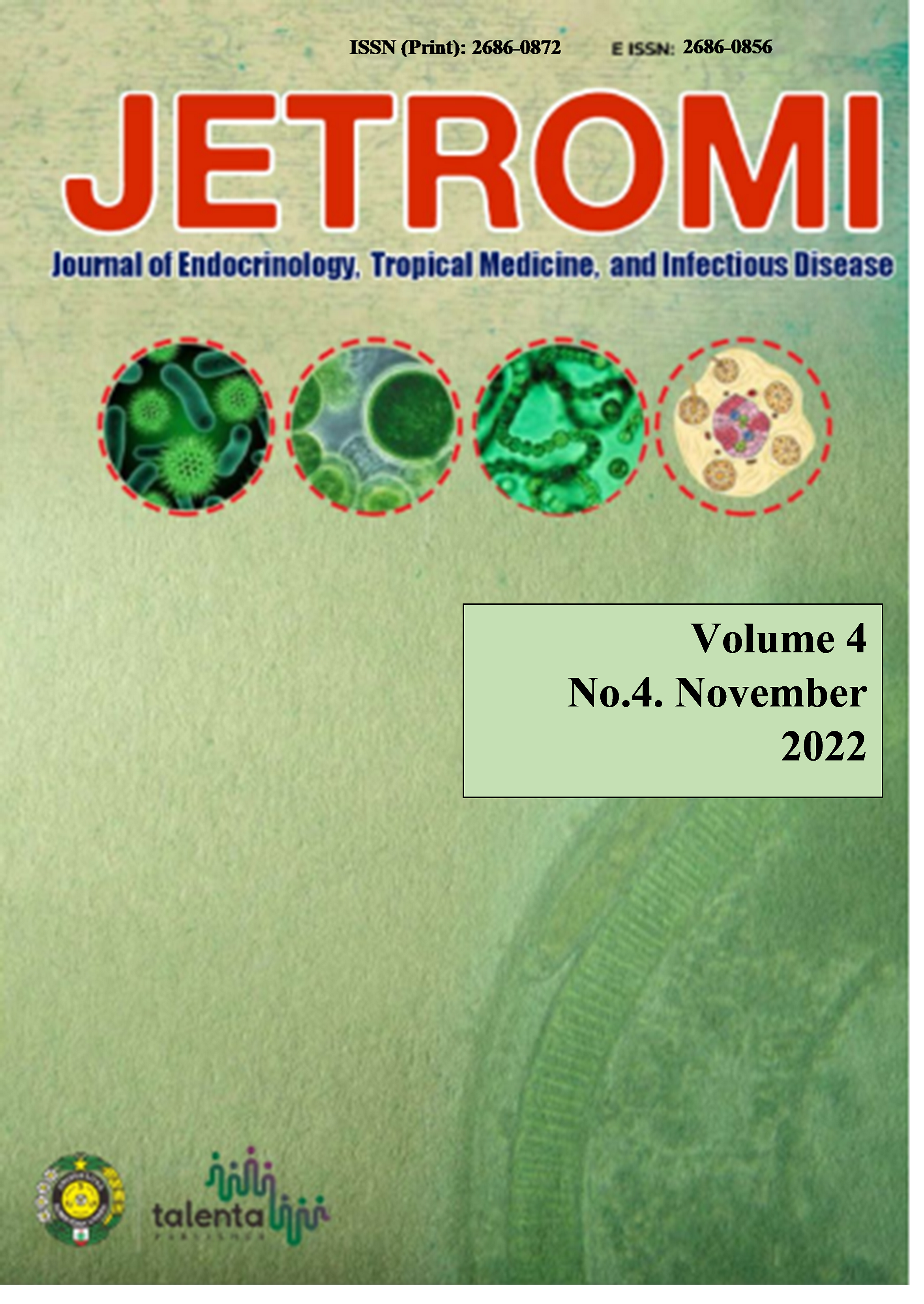Hypertension on Dialysis Patients: Influence Factor and Management
DOI:
https://doi.org/10.32734/jetromi.v4i4.14734Keywords:
Chronic Kidney Disease, Dialysis, Hypertension, Management, PathophysiologyAbstract
Background: Hypertension remains prevalent and challenging to manage in patients with chronic kidney disease, even with renal replacement therapy. This phenomenon arises from a variety of components that contribute to and create an intricate process of interaction, which can impact the regulation of blood pressure in patients undergoing dialysis. The main goal of this overview is to find the influence factor of blood pressure in dialysis patients and investigate ways to better control their blood pressure by incorporating these factors.
Methods: The literature searches using online databases such as PubMed and Google Scholar.
Results: After doing an online search, we found 32 articles were relevant to this review topic.
Discussion: There are additional elements that contribute to hypertension in dialysis patients, including excessive volume, heightened arterial rigidity, stimulation of the renin-angiotensin-aldosterone system, sleep apnea, activation of the sympathetic nervous system, and the administration of recombinant erythropoietin.
Conclusion: Enhanced comprehension of the numerous variables at issue can effectively enhance blood pressure regulation in this group of individuals.
Downloads
Downloads
Published
Issue
Section
License
Copyright (c) 2023 Journal of Endocrinology, Tropical Medicine, and Infectious Disease (JETROMI)

This work is licensed under a Creative Commons Attribution-NonCommercial-ShareAlike 4.0 International License.
The Authors submitting a manuscript do so on the understanding that if accepted for publication, copyright of the article shall be assigned to Journal of Endocrinology, Tropical Medicine and Infectious Diseases (JETROMI).
Copyright encompasses exclusive rights to reproduce and deliver the article in all form and media. The reproduction of any part of this journal, its storage in databases and its transmission by any form or media, will be allowed only with a written permission from Journal of Endocrinology, Tropical Medicine and Infectious Diseases (JETROMI).








